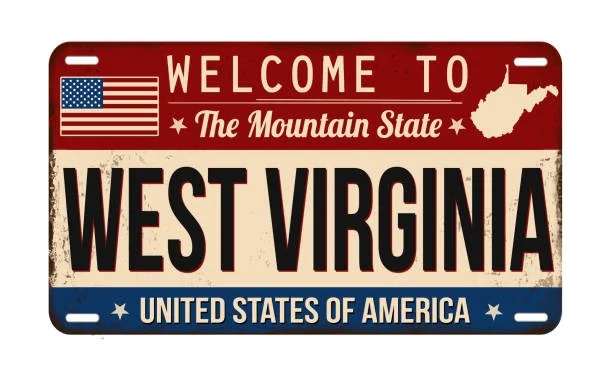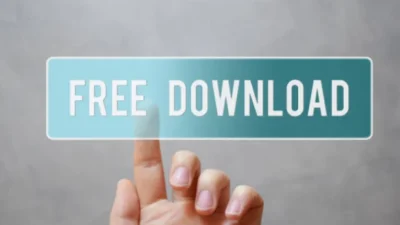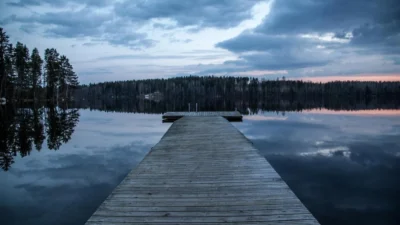There was a time when the phrase “addiction recovery” and the state of West Virginia rarely came up in the same conversation—unless the topic was how deep the crisis ran. But something’s changed. Quietly and steadily, this Appalachian state has started rewriting its story. Not through flashy programs or feel-good slogans, but with grit, community investment, and a lot of lived experience at the helm.
Today, recovery in West Virginia isn’t just possible. It’s happening—in church basements, small towns, and at the dinner tables of people who used to be statistics. And it’s being supported by a model that other states are now watching closely. What’s working here? A lot more than you’d expect.
Rooted in Real Connection
Recovery can’t happen in a vacuum. That’s one of the first things you hear when talking to people who’ve done the hard work of climbing out of addiction. And in West Virginia, connection isn’t just a concept—it’s the foundation. Across the state, peer-based recovery networks are thriving. Former addicts lead groups, mentor newcomers, and help shape the very programs that helped them heal.
There’s an understanding here that shame doesn’t fix people. The community does. Support groups are tucked into local libraries, fire halls, and family centers. You’re not a number in a system—you’re someone’s cousin, neighbor, or friend. And that familiarity, in a place where people tend to stick close to their roots, makes it harder to fall through the cracks.
It also means people come back. They leave inpatient treatment and land in places like a West Virginia sober living home, where recovery doesn’t mean starting over somewhere new. It means reintegrating into the same streets—but with better tools, stronger boundaries, and a group of people who genuinely want you to stay.
Getting the Housing Piece Right
There’s a lot of talk about treatment facilities, but what happens after the 28 days are up? That’s where West Virginia is really starting to shine. The state has invested in long-term, supportive housing designed not just to keep people off drugs, but to help them build lives.
We’re not talking about sterile apartments or glorified group homes. These are places where routines are respected, chores are shared, and relapse isn’t treated like moral failure. Residents are expected to show up—for themselves and each other—but they’re also surrounded by people who know what withdrawal feels like at 3 a.m. and how terrifying it can be to apply for a job after years in survival mode.
By combining structure with empathy, these homes are getting better outcomes than programs that rely on tight curfews and threats of eviction. They offer the kind of safety that doesn’t smother. People learn how to be part of a household again, how to talk through triggers instead of running from them, and how to accept help without shame.
And because the programs are community-embedded, there’s rarely a need to uproot someone from everything they know just to keep them clean.
Work That Means Something
One of the lesser-told stories about recovery is how important purpose becomes. You can’t just remove the substance and expect a life to make sense. There has to be something in its place. In West Virginia, that “something” often looks like a job that matters—and increasingly, that job is in the recovery field itself.
People who once cycled through jails and ERs are now becoming certified peer recovery coaches, helping others navigate what they’ve survived. It’s not just a paycheck; it’s a path to long-term healing. And it’s not lost on anyone that those with the messiest pasts often make the most compassionate mentors.
The state’s supported employment initiatives are helping on this front too. From reentry programs to apprenticeships tailored for people with felony records, the focus is less on background checks and more on skill-building. Because if you want someone to stay clean, giving them a shot at a life that doesn’t involve constant rejection goes a long way.
The Role of Faith and Familiarity
In many of West Virginia’s smaller communities, the recovery movement hasn’t been driven by giant health systems. It’s been shaped by churches, family groups, and former addicts who never left. That’s part of what makes it work. The people running meetings or delivering meals don’t come in from outside with clipboards and programs. They live there. Their kids go to the same school as yours. They’ve buried the same kind of friends.
This sense of shared experience is especially powerful when it comes to heroin addiction, which has devastated so many families in the region. In other places, conversations around opioids still carry stigma. But in a lot of West Virginia towns, the shame has slowly given way to shared resolve. There’s less whispering and more action. More honesty. More stories that start with rock bottom and end with someone helping others get back up.
Faith plays a part too—but not in a one-size-fits-all way. Yes, church-run programs are part of the recovery landscape, but they’re not the only way in. What matters more is that people find something steady, something that grounds them. For some, that’s scripture. For others, it’s a service. What unites them is the idea that everyone deserves a second chance—and that redemption doesn’t have to be earned. It can be accepted, one day at a time.
Small Wins That Actually Matter
Recovery is often talked about in sweeping terms—beating addiction, getting clean, starting over. But in West Virginia, success often looks like something smaller, something more sustainable. A guy who finally makes it to his shift on time every day. A mom who gets through a birthday party without needing to use drugs again. A teenager who walks into a meeting instead of stealing from his uncle again.
Those wins don’t make headlines, but they’re adding up. State data is starting to reflect it, too, with lower rates of relapse in counties with strong sober living networks and community-based programs. It’s not about perfection. It’s about progress—and the infrastructure that makes it possible.
When people are given safe housing, meaningful work, and a sense of connection, they’re not just less likely to relapse. They’re more likely to thrive. West Virginia is showing that addiction doesn’t have to be a dead end. In the right environment, it can be a turning point.
Where Hope Finds a Home
West Virginia still has its struggles, but the way this state is tackling recovery deserves national attention. It’s not built on punishment or shame. It’s built on the idea that people, even at their worst, are still worth showing up for. And when you give them the right support—real support, not lip service—they’ll often rise to meet you.
It’s not flashy. It’s not fast. But it’s working. And in a country still searching for answers on how to fix its addiction crisis, West Virginia may just be holding the map

Lexy Summer is a talented writer with a deep passion for the art of language and storytelling. With a background in editing and content creation, Lexy has honed her skills in crafting clear, engaging, and grammatically flawless writing.



